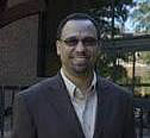Commentary on Romans 3:19-28
This passage — and much of Romans for that matter — reveals an ethnic conflict within the Christian community in Rome (cf. Romans 14:1-15:6).
How should non-Jewish believers (i.e., the ethnoi, in Greek) relate to the religious traditions of Israel? Can they become linked to the “one body in Christ” (cf. 12:5), if they do not have the same religious sensibilities as others within the community? Paul would, of course, respond “yes” to the last question. But Paul did not conclude that the religious traditions (or, more specifically, the significance of the Torah) should be disregarded by Jewish Christians. What he questioned was the theological idea of Israel’s covenant, a religious claim about God’s preference for Israel. The covenant was an ethnic claim about God’s choice for one particular group of people. Paul’s letter addressed this ethnic conflict, which was also a religious one.
Commentary
Following our section under discussion, Paul used “Abraham” — as any wise Jewish thinker in the first century would — as an example of securing “righteousness” through faith and not by Torah obedience (Romans 4:1-25). Abraham, in Israel’s tradition, was the father of “many nations” (cf. 4:16-17), a major factor for Paul’s argument when discussing the inclusion of Gentiles.
The main issue, in this section, was not human faith but God’s righteousness. In Romans 3:19-28, Paul attempted to account for God’s revelation of God’s self to humanity. “God” was the main character in Paul’s theological reflection and human faith was a secondary action, and even then it was an action modeled by Jesus Christ, God’s agent (3:22, 25, 26; see below). God put “Jesus” forward as an expression of God’s righteous character (3:25, 26); so, God acted through Jesus to express his commitment to reconciliation. For his part, Jesus succeeded by demonstrating his faithful, righteous actions (cf. 3:22, 25). By Christ’s action, as Paul reasoned, God’s “righteousness” or “justice” (Gr. dikaiosune) has been disclosed to the world.
Paul set out, in Romans 3, to discuss the “advantages” of the Jewish people, but focused primarily only on one advantage here: they possess God’s logia, translated as “oracles” (NRSV). In light of religious “faithlessness” (3:3), God’s logia probably referred to the Torah (cf. 3:19); or, perhaps the term was more inclusive, representing “the law and the prophets” (cf. 3:21). In any case, it was one of the advantages, according to Paul, the people of Israel held. This advantage did not relieve religious Jews from responsibility to others, since no one — except God — could claim to be righteous (3:9-18).
For Paul, the law was not the problem. It “speaks” to Israel (and, thereby, Jewish Christians; Romans 3:19), not to Gentile Christians, so Paul could continue to claim the Torah as “holy, just, and good” (7:12). Yet, even Gentiles — who were without access to the law — were blameworthy since all humans were morally culpable (3:23).
Furthermore, practicing the requirements of the law was simply an act (that made one part of the covenant) that allowed its followers to recognize wrong doing (Romans 3:20). It did not, in and of itself, make its adherents “righteous”; rather, inclusion in the Covenant made Israelites God’s people (cf. 9:5). So, a Gentile may be considered “righteous” before God “apart from” Israel’s Law (3:28). This was through the faithfulness of Jesus.
Here, Paul argued that Jesus Christ’s faithfulness “revealed” God’s justice plan. This plan did not eradicate the Law’s usefulness in the life of Israel (or, in the lives of Jewish Christians). Rather, to be clear, he would reiterate at the end of this section: “Do we then overthrow the law by this faith? By no means! On the contrary, we uphold the law” (Romans 3:31). The focus in our passage, however, was on the inclusion of the Gentile believer. And, Paul argued that Gentile inclusion was an original part of the divine plan, since Abraham.
Was Jesus faithful?
One of the interesting, recent discussions in biblical scholarship is whether the phrase — Dia pisteos ‘Iesou Christou — referred to Jesus’ own faithfulness or faith in Jesus Christ. The NRSV chooses the latter more traditional translation in Romans 3:22. One recent translation, the Common English Bible, takes the former approach translating the Greek in the following way: “God’s righteousness comes through the faithfulness of Jesus Christ for all who have faith in him. There’s no distinction.” Along these lines, if we accept the NRSV’s footnote in verse 26 as what the Greek meant, then Paul also wrote that God “justifies the one who has the faith of Jesus.” The traditional rendition places the stress on human faith in Jesus (i.e., “through faith in Jesus Christ); the more recent emphasis falls on Jesus’ own activity. If the more recent approach depicts Paul’s thoughts more accurately, then the entire passage accentuates not only God’s faithfulness in the divine plan but also Jesus’ faithfulness in carrying out God’s plan.
Ultimately, Paul was more concerned with the revelation of God’s “justice” (dikaiosune) than in the faith of individual believers. Of course, the two need not be juxtaposed in this way. For Paul, God’s actions were revealed in the “gospel” (Romans 1:17), or, to put it in another way, God was revealed in Jesus (cf. 3:21-22, 25, 26). By emphasizing Jesus’ own faithful actions, Paul stressed that God’s diakaiosune was not dependent on human activity (or, the human act of faith) but on Jesus’ steadfast commitment and righteousness actions.
So, what now?
What ethnic and religious differences divide us?
Paul’s use of his theological imagination to discuss this one ethnic and religious division has freed the contemporary church to think imaginatively about the other divides he listed in Galatians 3:28 (e.g., male/female; slave/free). We must also impose creative theological resourcefulness in order to think through the more recent borders that have separated us, along racial, ethnic, sexual orientation, and religious divisions in the contemporary world.
God acted through Jesus Christ to express his commitment to reconciliation; God put “Jesus” forward to show off God’s desire to set things right in the world (Romans 3:25, 26). A just God acts! So do people who love to express their love, especially when estranged from the ones they love. So, what must the people of God do in a world so full of injustice? How might our actions match our confessions?


October 25, 2015